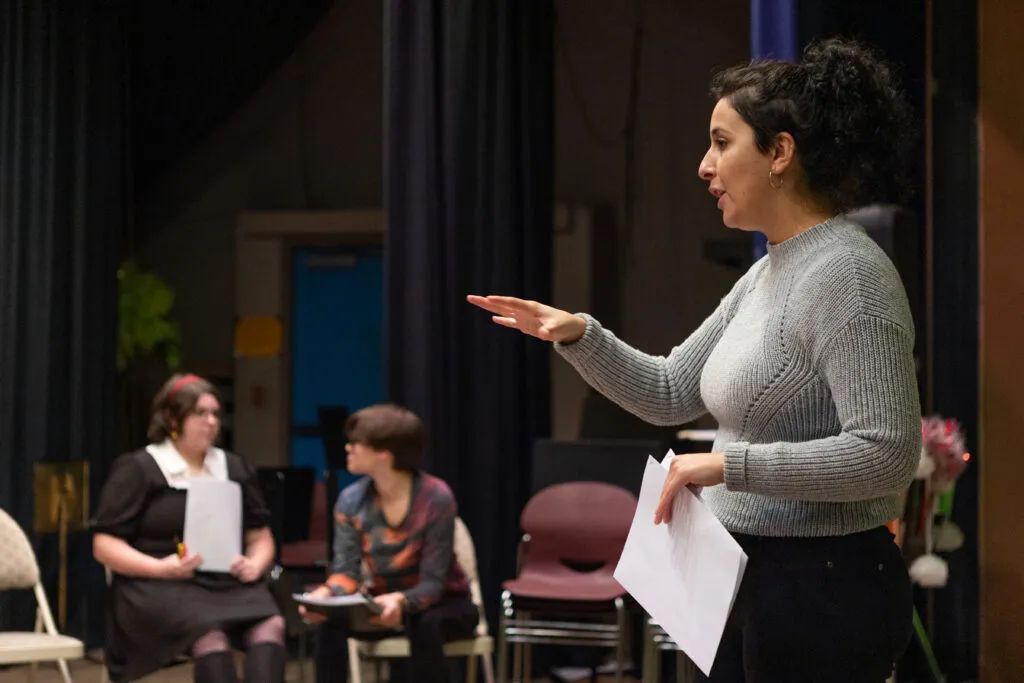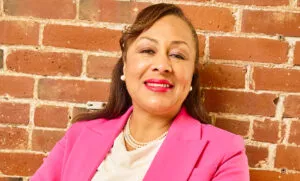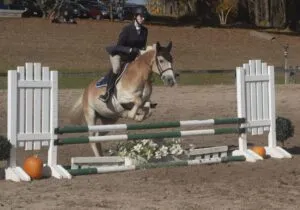A Common Language
Poliana Alarcón Bustos’ journey of language, literature, and connection
When Poliana Alarcón Bustos, MA ’18 attended her first day of English-language class at Worcester State in 2015, she realized she was surrounded by students who didn’t speak a common language. At first, they found ways to communicate without using spoken language. As the semester went on, they were able to share the excitement of acquiring a new language together and using it among themselves. “Suddenly,” Alarcón said, “you’re able to share your experience and ideas. All of us came the first day with no English, and at the end we were all best friends.”
Alarcón learned English at Worcester State’s Intensive English Language Institute (IELI) after coming to Massachusetts from Chile with no knowledge of the language. It was the influence of her father, who studied business administration at Worcester State from 1976 to 1980, that led her here. The diversity of the students in the program, which was intimidating at first, became something she found extremely beneficial. “It opens your mind,” she said. “It makes you a better person. You are exposed to people who have different religions, traditions, habits, food, perspectives of reality. You discover these differences are not bad, just different.”
During her two semesters at IELI, Alarcón was in classes for four hours a day, Monday through Friday. “My experience at IELI was short, but it was super intensive,” she said. “Everything I learned there was the foundation for what I’m doing now.” Alarcón had planned to learn some English, then return home, but, after completing the program, she enrolled at Worcester State to earn a master’s degree in Spanish.
It might seem unusual to some to study the literature of one’s native language in a setting where the majority of people speak another language, but it makes perfect sense to Alarcón. “The perspective is wider,” she said. “It includes texts about immigration, what it means to be a foreigner.”
She had worked in theater companies in Chile as an actress. “I was an actress since I was born. I was always speaking in public and in every after-school program.” She says she got this love of theater from her grandfather, who was a theater director. “The blood pulls you,” she said, quoting a Chilean saying.
As a student at Worcester State wanting to reconnect with that part of herself, she knocked on the door of Professor Adam Zahler, director of the Visual and Performing Arts Department. In that first meeting, they talked for two and a half hours. “It was the first time since coming to Massachusetts that I could speak to a professor in my own language,” she said. “Not Spanish, but theater.”
Zahler invited her to work as an assistant in the play he was directing that semester. “I was really glad I did,” Zahler said. “I was impressed then by her connection with our students. Since then, seeing her work with community members and other students, I realize how fortunate we are to have such a talented, insightful, and skilled teaching artist working with the university.”

As Alarcón is earning her PhD at Boston University, she remains active in Worcester theater, teaching after-school acting classes to students at David Prouty High School. (Photos by Matt Wright ’10)
Shortly after that, she joined the university’s Latino Education Institute, coordinating theater programs. In that role, she directed members of the community—many of whom had acted before—in a Spanish-language performance of the play Correr o Volar (Run or Fly), about the Mirabal sisters. It’s an experience she finds deeply rewarding. “That’s why I’ve stayed with LEI, because that’s what they do, they give access to the community, to kids and their parents who are workers and never had time to get involved in the arts.”
Her continued work with LEI is remarkable when you consider that she is also teaching two acting classes four times a week—while working on her PhD in the Hispanic Language and Literature program at Boston University. She teaches an introductory acting class at David Prouty High School in Spencer, Mass, where students learn the basics of performing arts theory and practice. Her students are preparing a stage reading based on the play Six Characters in Search of an Author by the Italian dramatist Luigi Pirandello with original monologues about their experiences and views of life and art.
Her dissertation is related to feminist activism through theater in Chile, Argentina, and Brazil. She’s focusing on the work of theater companies founded by women that are tackling topics that nobody wants to talk about in countries that are heavily influenced by the Church and that have seen multiple transitions between extremely right-wing governments and more progressive ones. She’s exploring how women are working within this instability to deconstruct patriarchy.
She is drawn to theater that’s political. “If it’s only about having fun, that doesn’t make sense to me. What is the sense of representing life issues if you’re not going to let the audience take something from them. It’s not about being leftist or conservative. It’s about human rights, equality, respect.”



